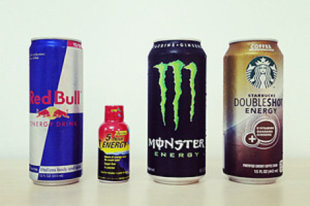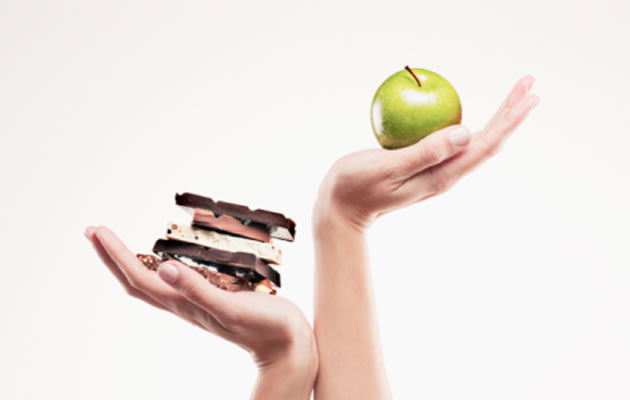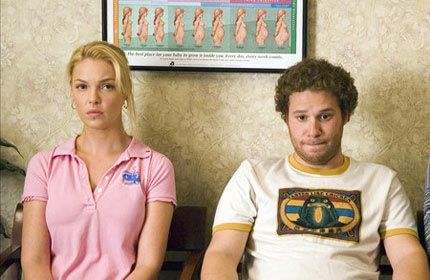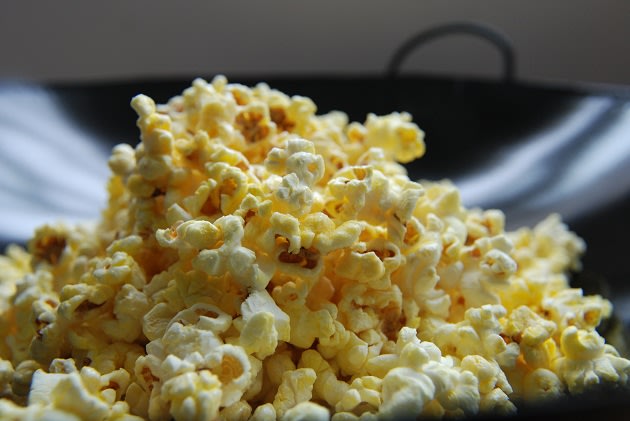
Get latest information about feminine, girl, woman, mother, fashion, beauty, health, parenting, food, and house in Feminine Blog
Showing posts with label Health. Show all posts
Showing posts with label Health. Show all posts
Monday, 22 October 2012
Stop Excessive Pregnancy Weight Gain

Saturday, 13 October 2012
Sun protection tips

Thursday, 11 October 2012
9 Sources of Vitamin C

Wednesday, 3 October 2012
Physical intimacy after menopause

Labels:
Health
Saturday, 29 September 2012
4 Reasons Why Having a Dog is Good for Your Health

Labels:
Health
Friday, 28 September 2012
7 Easy Ways to Make Your Kitchen Healthier

Tuesday, 25 September 2012
4 Fresh Flat-Belly Moves

Labels:
Health
Saturday, 25 August 2012
5 Simple Tips for Healthy Teeth

Labels:
Health
Tuesday, 31 July 2012
How Much Water Do We Really Need to Drink?

Labels:
Health
Saturday, 28 July 2012
How Healthy is Your Heart?

Labels:
Health
Monday, 23 July 2012
Pot smoking, even previous to pregnancy increases preterm risk

Labels:
Health
Sunday, 10 June 2012
De-stressing secrets from around the world

Your "coffee break" may consist of an out-and-back sprint to grab a latte to-go, but in Sweden, the institution of the coffee break (usually around 10 a.m. and another at 3 p.m.) is a sit-down mini-meal that dates back to the 1700s.
It's called fika, and it involves leaving the workplace with a friend to have a cup of coffee and, usually, a sweet treat. Schedule an afternoon fika into your busy day, and invite friends to join you (you can't fika solo). Gevalia, a coffee brand founded in Sweden in 1853 and now available in the U.S., has found that Swedes prefer darker, stronger-tasting brews than Americans do, so follow their tradition by ordering French roast or espresso, as well as a chocolate or pastry.
If you're worried about being away from your desk, keep in mind that a 2009 MIT study showed that those who got up to socialize with colleagues during the day showed a 10 to 15 percent increase in productivity over coworkers who preferred to be left alone. As for the cinnamon roll, be sure to savor it with your coffee on-site: Research has shown eating in front of a computer causes us to eat more, appreciate the food less, and nibble throughout the day.
2. India: Getting a Massage-Above the Shoulders
Indian head massages date back thousands of years, according to Ayurvedic texts, and are believed to not only balance the chakras, or energy centers, but also alleviate stress, stimulate the lymphatic system and relieve migraines. While some versions of this therapy can put clients to sleep, others can induce heightened alertness and concentration, which can make you eager to dive back into a project, says Denise Galon, PhD, a certified massage therapist based in New York.
Galon practices and teaches a form of head massage called "champissage" which involves traditional frictional moves on the head combined with Western de-tensing techniques for the shoulders and neck. To relieve headaches and stress, Galon suggests the "occipital rub": Place your first three fingers behind your head at the spots just behind the ears where the neck connects to the head. With your elbows bent, push your fingers toward and away from one another, creating a rubbing movement on the base of the skull. Do this for 30 seconds--then sigh in relief.
3. Japan: Going Shoeless at Work
We've heard about the habit in Asia of taking off shoes before entering the home, but in Japan, it's also common for professionals to kick off their stilettos when arriving at the office. They store their "outside shoes" in a vestibule, cubby or locker and change into inexpensive slippers to pad around the office and settle in at their desks. Being comfortable not only helps people to better focus on their work (and not the throbbing pain in their big toe), but, for women, it also helps eliminate calf and ankle cramps from wearing high heels. When you consider the amount of time we spend at the office, comfortable, under-desk slippers seem like a worthwhile investment.
While Japanese and Americans are both infamous for their workaholic tendencies, Japan, like most other industrialized nations, has a law requiring employers to provide paid holidays--20, plus the country's 16 public holidays. In the U.S., where there's no law mandating vacation time (the consulting firm Mercer has found that the average tends to be 15 days), we enjoy only 10 public holidays--and only a few fall during months warm enough to go barefoot.
Simple relaxation techniques can help you manage stress and release tension
What’s stressing you out? Chances are, it’s quite a long list: work, your kids, money, family and a whole host of other factors contribute to stress. But if you’re trying to reduce your stress by simply shutting out these stressors, you’re going about it the wrong way.
The way to deal with stress is not by trying to fix what’s “wrong” in your life, says Dr. Edward Leyton, a physician and psychotherapist in Kingston, Ont. Instead, we need to learn how to adapt and deal with those stresses we face on a daily basis to achieve true relaxation.
1. Fight or flight
Human beings are hardwired to deal with stress in a certain way, says Leyton. “It’s the old story of the sabre tooth tiger who lives around the corner,” he says. “We come across the tiger in the jungle and our stress system is wired for us to expend energy in the face of that stress. It’s called fight or flight.”
In other words, our body is made so that if we’re stressed, we either physically fight our stressor or physically run away. The problem is most of today’s stresses are psychologically oriented, and you can’t start literally punching your way out of a problem like a demanding boss (no matter how much you wish you could!).
What happens when we get stressed is our adrenaline goes up, but we no longer have the physical release. We don’t expend that energy, therefore we get tense, causing things like tension headaches, pain in the jaw, grinding teeth and more. In the long run, holding in all that pent-up energy can contribute to serious health conditions, Leyton says.
2. Dealing with stress
The truth is we’re not going to be able to eliminate stress in our lives. Nor can we stop our physical fight or flight response to stress – in fact, Leyton says we don’t want to eliminate that response (it comes in pretty handy if you’re about to be run over by a car!).
Instead, Leyton recommends finding ways to manage your stress response, release the stress and relax so it doesn’t get pent up inside. Here are some of his best tips on how to relax:
a. Breathe deeply:
Breathing deeply activates the body’s relaxation response, reducing the adrenaline caused by our fight or flight response. Most of us breathe far too shallowly, Leyton says. Take deep breaths from your diaphragm, pushing your stomach in and out.
b. Exercise:
Exercise is a great stress reliever, Leyton says. “If you’re under stress and you’ve got that energy in your muscles, it is activating that stress,” he adds. Try a bout of vigorous exercise to release adrenaline and reduce stress.
c. Tune out and focus:
Leyton says many of us can reduce stress by simply tuning out the information we’re bombarded with every day and focusing on one thing. He recommends finding a mantra or affirmation that helps you focus and repeating it while breathing to achieve relaxation. Meditation can also be helpful, he adds.
Labels:
Health
Wednesday, 23 May 2012
7 Guaranteed Ways to Be Happier Right Now

Planning a brunch party, weeding the garden, or pulling out a craft project seems like a lot of trouble, while plunking down in front of the TV or digging into a tub of ice cream entices you as an easy fix. But research shows (and you know it's true) that these aren't the routes to lifting your spirits.
Instead, I've found it helpful to look for patterns in the times of day when I begin to drag: Am I having trouble getting out of bed in the morning? Passing out at my desk in the mid-afternoon? Dragging around the apartment after dinner instead of having fun with my family? Sometimes, oddly, I'm too tired to go to bed: I can't face the effort of brushing my teeth, washing my face, and all the rest. Once I identified the energy dips in my daily routine, I was able to identify strategies to keep my energy higher - and I've been astonished by how quickly and easily I'm able to give myself a boost.
For long-term energy, it's most important to a) get enough sleep and b) get some exercise. But that doesn't help you if you need some energy right now. When I'm desperate for an immediate happiness boost, these are the tips that really work for me:
1. GO OUTSIDE INTO THE SUNLIGHT
Light deprivation is one reason that people feel tired. Research suggests that light stimulates brain chemicals that improve mood. For an extra boost, get your sunlight first thing in the morning. And while you're outside...
2. GO FOR A BRISK WALK
One study found that even a 10-minute walk is enough to increase energy and decrease tension.
3. ACT WITH ENERGY
We think we act because of the way we feel, but often we feel because of the way we act. Trick yourself into feeling energetic by moving more quickly, pacing while you talk on the phone, and putting more energy into your voice.
4. LISTEN TO YOUR FAVORITE UPBEAT SONG
Hearing stimulating music gives an instant lift and is one of the quickest, most reliable ways to affect your mood and energy level. I'm always surprised by the effectiveness of this strategy.
5. TALK TO AN ENERGETIC FRIEND
Not only do you gain energy from interacting with other people, but you also - in what's called emotional contagion - "catch" their emotions. Instead of infecting others with your draggy mood, try to lift yourself by catching the energy of a boisterous friend.
6. TACKLE AN ITEM ON YOUR TO-DO LIST
Unfinished tasks weigh you down. So if you feel bad about skipping your skin cancer check, not having completed an overdue report, or not having faced this month's bills, force yourself to tackle one thing that's nagging at you. It's tough, but you will feel a huge rush of energy when you cross it off your list.
7. CLEAN UP
I'm not sure why tidying makes such a huge difference, but when I feel like I can't face the day, I tidy up my desk, and I perk right up.
Labels:
Health
Friday, 18 May 2012
Is Your Energy Drink Safe?

Responding to this placement and extensive advertising, consumers now spend more than $9 billion per year on energy drinks. But do we really know what we are buying? Are these drinks safe? Do they carry health risks? Before you reach for that magic bottle that promises enhanced alertness, concentration and physical performance, you need the facts.
What Is In Energy Drinks?
Precise recipes vary, but the common element is caffeine. Caffeine is the key ingredient in energy drinks. A standard cup of coffee has about 100 mg of caffeine, a cup of tea 50 mg and a can of cola 35-55 mg. Energy drinks usually have more. A single serving of an energy drink can have anywhere from 50 to 500 mg of caffeine.
And the addition of guarana (a South American plant extract that contains additional caffeine) ups the caffeine dose even more. Although the FDA regulates the amount of caffeine in soft drinks (maximum of 71 mg per 12-oz serving), there is no such limit for energy drinks.
Caffeine is a stimulant. Scientific studies in adults show that caffeine can increase alertness, improve concentration and enhance mood. Modest caffeine intake (less than 400 mg per day) is safe for most adults. But too much caffeine can cause problems, including restlessness, irritability and difficulty sleeping. Massive caffeine overdoses can cause reduced blood flow to the heart and abnormal heart rhythms.
Many energy drinks also contain sugar. Sugar is "real energy." Your body can use the sugar as fuel to do work. But don't forget that extra sugar means excess calories. A steady consumption of sugar-filled energy drinks will lead to weight gain.
Other ingredients, including the amino acid taurine, ginseng and assorted vitamins, probably have little to no impact on a person's perceived energy level. Although manufacturers tout the importance of these additives, their purported benefits are unproven. One note of caution-ginseng can interact with a variety of prescription medicines.
Energy Drinks vs. Sports Drinks: Know the Difference
Although often displayed in the same section of the store or even right next to each other, energy drinks (e.g. Monster, Five Hour Energy) and sports drinks (e.g. Gatorade, Powerade) are not interchangeable. Containing water, carbohydrates and electrolytes, sports drinks help athletes to rehydrate and replenish electrolytes and carbohydrates lost during strenuous athletic activity; this is a perfectly legitimate use of these products.
Energy drinks are different. Containing stimulants, they do not replenish electrolytes. Furthermore, caffeine can be dangerous for the dehydrated athlete who already has an elevated heart rate and blood pressure from physical exertion. Do not use energy drinks during sports-they do not provide the "energy" you need.
Energy Drinks Are Not for Kids
More than half of the energy drink market consists of children and young adults. Although endorsed by sports stars and targeted to younger people, energy drinks are not for kids. The American Academy of Pediatrics summed it up, concluding that "energy drinks have no place in the diet of children and adolescents."
Energy Drinks and Alcohol: Danger!
On November 17, 2010, the FDA ruled that premixed drinks that include both alcohol and caffeine (alcoholic energy drinks) are unsafe. Although this stopped sales of such beverages, the ruling did not curtail the practice of combining alcohol with energy drinks. People just mix the drinks themselves. Surveys find that 25 to 50 percent of college students regularly consume combinations of energy drinks and alcohol. This is a dangerous practice.
The caffeine in energy drinks can counteract the drowsiness normally caused by alcohol. Drinkers stay awake longer and often drink more. This increases the risk of alcohol poisoning. In addition, the energy drink can create the perception that the drinker is not impaired by the alcohol; the drinker feels more "alert" and believes that his reflexes (and driving ability) remain intact. This can lead to serious problems behind the wheel.
Energy drinks do not counteract alcohol's effect on dulling reflexes. If you are of age, drink alcohol responsibly. Don't mix alcohol and driving. And don't mix alcohol and energy drinks.
Are Energy Drinks for You?
In a court of law, we presume that a person is innocent until proven guilty. When it comes to medicine, we take the opposite approach. A drug or supplement is considered dangerous until proven safe.
Energy drinks have not been proven safe. In fact, because they are classified as supplements, they are not even regulated by the FDA. This means that their ingredients are not tightly controlled and their health effects are largely unstudied.
We do think that an adult who consumes an occasional energy drink (one a day) is unlikely to suffer harm. But too much can lead to caffeine overdose and health problems, and mixing energy drinks and alcohol is a bad idea. And remember-there is no justification for giving these drinks to children and teens.
Seek simpler and safer ways to maintain your energy and stay alert. Get a good night's sleep. Exercise daily. Eat well. These are the real magic bullets.
Labels:
Health
Monday, 14 May 2012
The best and worst chocolates for your body

But not all varieties are created equal, warns Andrea Giancoli, R.D., spokesperson for the Academy of Nutrition and Dietetics. Chocolate's healthful effects derive from its plant source, the cacao bean, which contains flavanols (phytochemicals that act as antioxidants); different formulations have varying amounts of the magic ingredient. Here's how these sweets stack up.
MILK CHOCOLATE
With fewer flavanols than dark, milk chocolate isn't a top choice. But you can pump up the benefits by going for a bar with a medium to high level of cacao (around 40 percent) and some nuts or dried fruit for an extra boost of good-for-you ingredients.
Try: Chuao Chocolatier Caracas. The cacao clocks in at 41 percent; almonds, hazelnuts, and pistachios offer protein and other nutrients.
WHITE CHOCOLATE
This counterintuitive "chocolate" is the least nutritious option in the bunch because it doesn't contain cacao, says Giancoli. "The only advantage you can hope for is a bit of calcium."
Try: Divine White Chocolate With Strawberries. Strawberries, dehydrated at their peak of ripeness, add a dose of antioxidants.
DARK CHOCOLATE
Deeply colored, somewhat bitter bars are the gold standard of healthy chocolate because they have the most cacao. "Most palates can't handle the strong taste of pure dark chocolate," says Giancoli, "but 70 percent seems to be the sweet spot."
Try: Lindt Excellence Smooth Dark 70 Percent Cocoa A super- short list of ingredients-just five!-earns this pick high marks.
After you've decided how dark to go, check the label to make sure your choice is the real deal. Cocoa butter should be one of the first few ingredients. Avoid chocolates that list waistline-unfriendly corn syrup, cane sugar, orwhole milk near the top. Most 3.5-oz bars have a whopping 550 calories and 30 to 40 grams of fat. So rather than considering the entire thing a "serving, savor that dessert one ounce at a time and you'll take in only around 150 calories.
Labels:
Health
Sunday, 6 May 2012
Calorie counting and why it works

Most glaring of all is that it doesn't work for many people. Despite the restrictive lifestyle they put themselves on, they don't seem to get much resultThis is backed up by research* showing that the effectiveness of a diet plan was VERY dependent on the current state of the individual person.
The main difference in question was what is known as insulin resistance. Simply put, a person who is insulin resistant tends to put any nutrients eaten into their fat stores i.e. they get fatter. A person who is insulin sensitive (the opposite of resistant) tends to put their nutrients into muscles and organs for use and to be burned off.
For people who are insulin sensitive, all kinds of diets worked well for them. High carbohydrate, high fat, low fat, balanced plans, etc. So they are the lucky ones. With a high carbohydrate diet they dropped about 9lbs and with a low carbohydrate, high fat diet they dropped 11.7lbs.
For the people who are insulin resistant, the results of the low carbohydrate, high fat diet were far more effective. With a high carb diet they dropped only 3.3lbs, and with a low carbohydrate diet they dropped 11.9lbs.
So, no matter who you are, a low carbohydrate, high healthy fat (coconut, butter, animal fat, nuts, avocados, etc) will work, and if you are insulin sensitive, almost any diet will work. Besides helping you reduce weight, being insulin sensitive also reduces cardiac and diabetes risk, and tends to allow more stable energy levels throughout the day.
How does one make him/herself more insulin sensitive and more able to handle nutrients? Here are some simple actions that all of us can do to boost insulin sensitivity and reduce insulin resistance:
- Do strength training - it boosts insulin sensitivity which long slow cardio does not
- Consume healthy fats, in particular Omega-3s and mono-unsaturates from sources like olive oil.
- Cut our refined carbohydrates (read this). For obese people I would limit this to non starchy fruits and unlimited vegetables
- Sleep well (I wrote about that here), as sleep deprivation makes you more insulin resistant
- Manage stress levels, do some relaxing stuff daily - writing a journal, hanging around with positive people, and smiling are some simple things that everyone can do
Labels:
Health
Wednesday, 25 April 2012
Fertility Tips Every Woman Should Know

William Gibbons, M.D., president of the American Society of Reproductive Medicine and director for Reproductive Endocrinology and Infertility at Baylor College of Medicine in Houston, gave HealthySELF his most important pieces of advice when it comes to maximizing your fertility.
1. Have sex! Sound obvious? "Yes and no," says Dr. Gibbons. The more sex you're having, the higher your chances of getting pregnant -- but only to a point. "On average, about half of couples trying to get pregnant will do so within six months," says Dr. Gibbons, explaining that if you have sex less than once a week, your odds drop from 50 percent to 18 percent; if you have sex three times a week, your chances increase to about 80 percent. However, if you're having a ton of sex -- say, several times a day -- Dr. Gibbons says that your partner's sperm count could be negatively affected.
In fact, speaking of sperm count, "male-factor infertility is much more common than it used to be," says Dr. Gibbons, adding that about 40 percent of the couples he sees in his practice are there because of an issue with the man's fertility. And, according to the American Society for Reproductive Medicine, one-third of infertility cases are attributed to the male partner (with one-third attributed to the female partner and the other third either caused by a combination of problems in both partners or "unexplained").
2. Don't smoke. "First off, you shouldn't have any cigarettes," says Dr. Gibbons, noting that studies show that if you're smoking 10 or more cigarettes a day, your fertility is definitely diminished -- but even a few a day can have a negative impact, he says (on your general health, too!). "There is evidence that some of the chemicals in cigarette smoke kill the ovary. Women who smoke go through menopause earlier because they're killing their eggs," he says. Also something to consider: Dr. Gibbons notes that, though it's harder to detect in men, there is some evidence that smoking can affect sperm concentration and motility.
3. Maintain a healthy weight. "Women who have a BMI of greater than 27 or less than 17 have diminished fertility," says Dr. Gibbons. "Being in the middle is better -- and that's even true for the male partner!"
4. Moderate your alcohol intake. According to Dr. Gibbons, there's evidence that if you have more than four drinks a week, it can diminish your fertility and increase your risk of ovulatory disfunction. A "drink," he says, is defined as the equivalent of 12 grams of alcohol (so, a 12-oz beer, a 5-oz glass of wine or a mixed drink with 1.5 oz of spirits). There's also evidence that moderate to heavy drinking increases your risk of endometriosis, says Dr. Gibbons.
5. Take it easy on the caffeine. Dr. Gibbons agrees with the March of Dimes recommendation that you consume no more than 200 mg of caffeine per day if you're trying to get pregnant. "That's about three cups of coffee per day," he says.
6. Exercise -- but not to extremes. Exercise and diet are part of a healthy lifestyle, says Dr. Gibbons, but don't overdo it when it comes to working out. "There's a recommendation that women do no more than seven hours of aerobic exercise a week," he says. "More than that begins to be a concern, and has the potential to reduce your fertility."
7. Have safe sex. Protecting yourself from STDs plays a role in your ability to get pregnant. "Venereal diseases clearly have a very adverse affect on your fertility," says Dr. Gibbons. Chlamydia and gonorrhea in particular are "very happy to target your fallopian tubes."
And last, but very certainly not least...
8. Don't delay thinking about all of this. "One of the most important things for women is to understand is that they really need to begin to decide when they're going to build their families [by the time] they're in their early 30s," says Dr. Gibbons. "Many physicians are not talking to their patients about this." If you think you might want kids "someday," it might be time for a heart to heart ... at least with yourself!
Labels:
Health
Tuesday, 10 April 2012
Did you know that popcorn was originally a healthy snack?

However in the beginning, popcorn was meant to be healthy. There are many different accounts on who was the original inventor of this fluffy snack, but many believed it to be the American Indians. As the story goes, the American Indians were big fans of corn, and one day, some corn fell inside the campfire and popcorn was born.
Archaeologists have found 80,000-year-old corn pollen below Mexico City. Because this pollen is almost exactly the same as modern popcorn pollen, researchers believe that ancient cavemen most likely had popcorn.
Popcorn is healthy due to its high fibre content. However since then, the snack has been overdosed with sugar, salt and a host of funky artificial flavourings. Today, in areas like Nepal, India, people are still enjoying popcorn the natural way, popped over a fire.
A recent study by the University of Scranton has reported that popcorn contains more antioxidants (due to polyphenol) than fruits and vegetables. The reason for this is because popcorn (100% grain) does not contain a lot of water compared to fruits and vegetables.
Dr. Vinson, one of the researchers at the university, cautioned, however, that the way people prepare and serve popcorn can quickly put a dent in its healthful image. Dr. Vinson comments, “Microwave popcorn has twice as many calories as air-popped, and if you pop your own with oil, this has twice as many calories as air-popped popcorn. About 43 percent of microwave popcorn is fat, compared to 28 percent if you pop the corn in oil yourself.”
Labels:
Health
Tuesday, 27 March 2012
10 surprising health facts

Although sugar does not have the same stigma attached to it as smoking, the truth is indulging on sweet treats or dessert could be as bad for you as lighting up a cigarette. According to research by a University of California team, sugar is as damaging as both alcohol and cigarettes and, according to the researchers, should therefore be regulated to control consumption.
2. An hour’s sleep could make you happier than $60,000
What would it take to make you happier? A better job? A larger salary? Well, according to a US study by psychologist Daniel Kahneman and his colleagues, an increase in household income actually has little effect on your daily mood. In fact, the study suggests that getting one extra hour of sleep each night does more for your daily happiness than a $60,000 (£38,000) raise!
3. Exercise won’t make you thin
Although many people use exercise as their sole method of weight management, many studies have shown that exercise, when not combined with dietary changes, does very little in respect to losing weight. A study published in The British Journal of Sports Medicine found that when a group of obese people completed 12 weeks of supervised cardio workouts without dieting, most did not experience any significant weight loss results. However, it is important to remember that, while it may not lead to weight loss by itself, exercise still has plenty of other health benefits.
4. Chewing gum boosts your brain power
Don’t have time for your morning coffee? Try a piece of chewing gum instead to feel more alert. Researchers at Coventry University have discovered that chewing mint-flavored gum could dramatically decrease feelings of tiredness. Meanwhile, separate research studies have suggested that chewing gum can improve test scores and improve memory by 35%.
5. Coffee can help ward off depression
We often hear about how caffeine is bad for us; however, a study from the Harvard School of Public Health has found that, for women, drinking four or more cups of caffeinated coffee a day could reduce risk of depression by 20 per cent. An earlier study of over 80,000 women also revealed that women who drink more than two cups of coffee a day are less likely to commit suicide.
6. Being optimistic can save your life
We all know that thinking positively can have a great impact on your happiness, however research has also revealed that being an optimist can help you live longer. Research findings published in the European Heart Journal reveal that optimistic people are less likely to suffer from heart disease, while researchers at Duke University Medical Center found that heart patients who were more optimistic about their treatment lived longer than those who were not.
7. Cash machines are as dirty as public toilets
Few of us would wash our hands after getting money out from an ATM machine; however, cleanliness tests in Britain have revealed that cash machines are just as dirty as public toilets. Experts assessed swabs from the key pads on cash machines and also from nearby public toilets and found that they both contained the same types of bacteria known to cause sickness.
8. Women are nine times more likely to suffer from a broken heart
Many people have felt at times like they were going to die from a broken heart, and research studies have now confirmed the existence of broken heart syndrome, a condition in which the release of adrenaline caused by shock (often due to overwhelming fear or pain) can lead to heart failure. Surprisingly research has also concluded that women are up to nine times more likely to suffer from this condition.
9. Less than one per cent of bacteria cause disease
In day to day to day life, we are surrounded by bacteria – in fact, healthy human skin is covered in around 1000 different species of bacteria. However, contrary to popular belief, most bacteria are not harmful and, in fact, less than one per cent cause disease. Furthermore, many forms of bacteria are actually good for you, including many of those that live on your skin and in your gut.
10. Stretching before running may lower your endurance
Many of us have been taught to warm up before exercise, however recent studies suggest that stretching before a run may not be beneficial to your workout. A study published in the Journal of Strength and Conditioning Research found that stretching before going for a run made a runner’s body less efficient so that they did not perform as well and were unable to run as far.
Labels:
Health
Monday, 19 March 2012
7 ‘good’ habits that are bad for your health

1. Drinking water
While we are probably all familiar with the advice to drink eight glasses of water a day, more recent research has suggested that there is actually no scientific evidence supporting this recommendation and that drinking excessive amounts of water can actually be dangerous by lowering the concentration of salt in your blood. Health-conscious water drinkers should also be wary of the trend for drinking bottled water, as studies have suggested that the chemicals (phthalates) from plastic bottles can leach into water and disrupt hormone levels.
2. Talking over your problems
Talking through your problems can be a great way to gain some perspective and get things off your chest. However, studies have suggested that, after a certain point, rehashing and dwelling on problems can actually be bad for your health. According to research, revisiting and analysing the same problems with friends (“co-rumination”) can lead to anxiety, stress disorders and depression. Next time a problem arises, by all means talk it over with a friend, but try to focus on problem-solving rather than simply dwelling on the issue.
3. Sipping on mocktails
You may think that by swapping cocktails for mocktails you are doing your health a favour, but this may not actually be the case. While cutting down on alcohol is beneficial for your wellbeing, mocktails are often high in refined sugar which research suggests is just as damaging and addictive as alcohol. For a safer swap and a shot of nutrients, make sure you stick to mocktails made from pure fruit juices instead of those made from syrups.
4. Early morning workouts
While a daily workout is great for your health, studies suggest that getting up for early morning exercise may not be as ideal as it seems. A study by a researcher from Brunel University, Middlesex, found that heavy training sessions early in the morning can compromise the immune system and put athletes at increased risk of bacterial and viral infection. While a morning jog or gentle exercise session is unlikely to put you at risk, it may be better to save heavier workouts for later in the day.
5. Taking nutritional supplements
We all know that vitamins are good for us, but relying on nutritional supplements can actually be bad for your health. Separate studies have shown that high doses of vitamin supplements including iron, magnesium and vitamin B6 raise the death rate of older women, while taking vitamin E can increase men’s risk of prostate cancer. While certain people may be required to take vitamins (those with low levels of vitamin D, for example, or vegans who may be deficient in vitamin B12), for most people a better approach is to opt for a varied diet full of fruit and vegetables which will give you all the nutrients you need.
6. Slathering on sunscreen
Official advice for many years has warned about the dangers of skin cancer, causing many of us to take measures to cover up in the sun at all times. However, while it is extremely important to protect your skin, experts have more recently advised that little and frequent sun exposure is good for us, preventing vitamin D deficiency, which can lead to rickets, osteomalacia and depression. Official advice in the UK, where rickets has recently made a comeback, is to spend 10 minutes in the midday sun without sunblock each day before covering skin up.
7. Switching to low fat foods
When getting started in healthy eating, it is tempting to opt for low fat foods in order to help keep off excess pounds. However, cutting out ‘good’ fats such as omega-3 fatty acids could be detrimental to your health. Omega-3 fatty acids, found in oily fish, walnuts and flaxseeds, not only help to keep skin supple and wrinkle-free, they are also essential for good brain and heart health and can help prevent arthritis.
Labels:
Health
Subscribe to:
Comments (Atom)